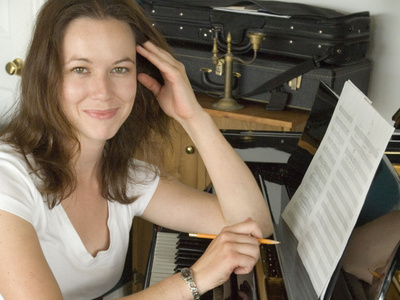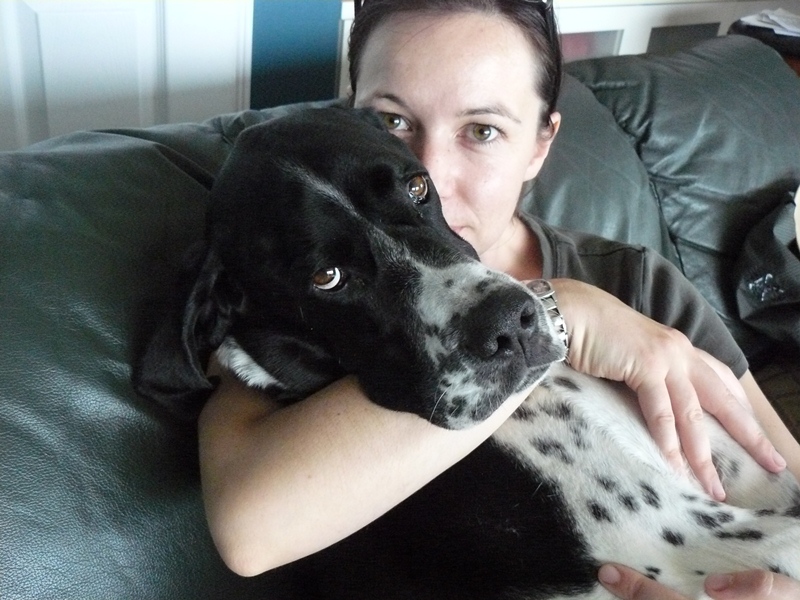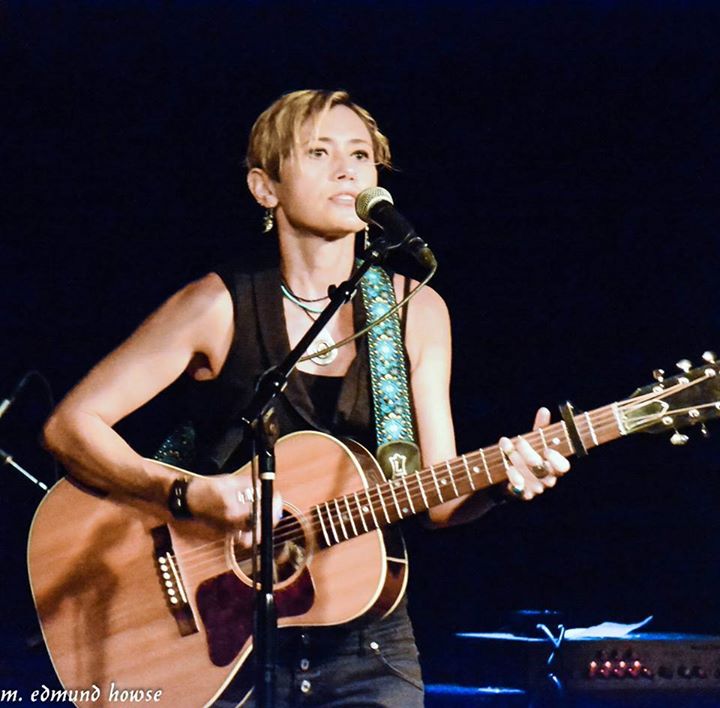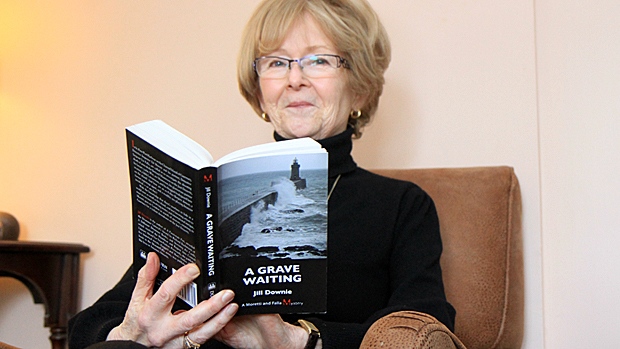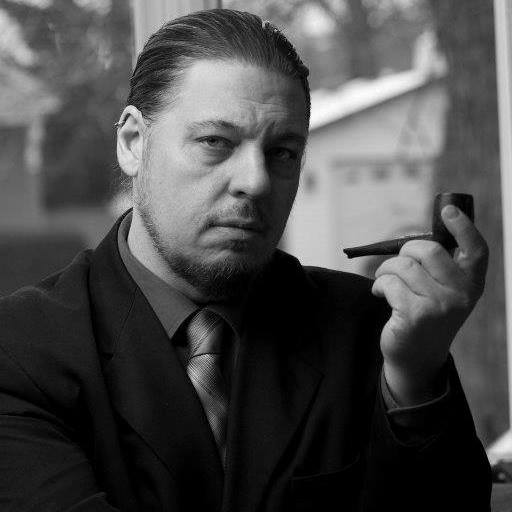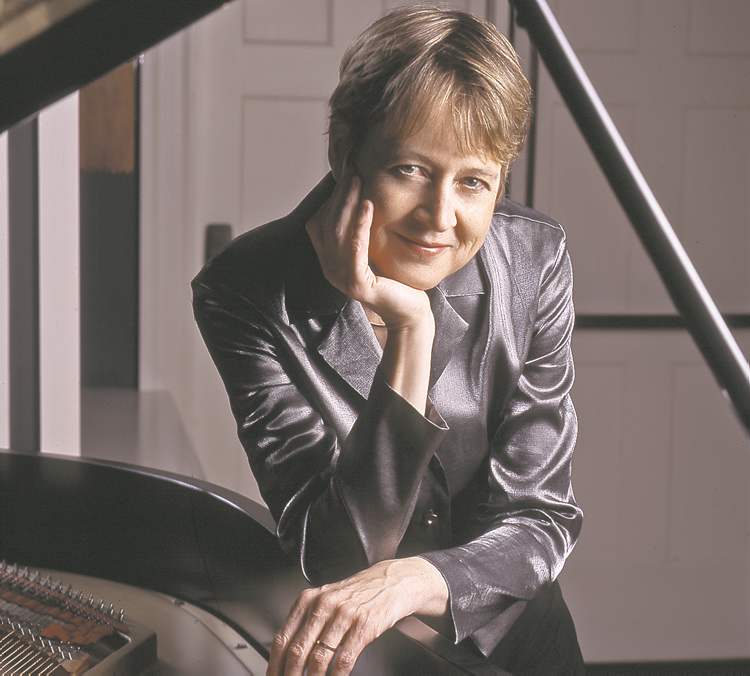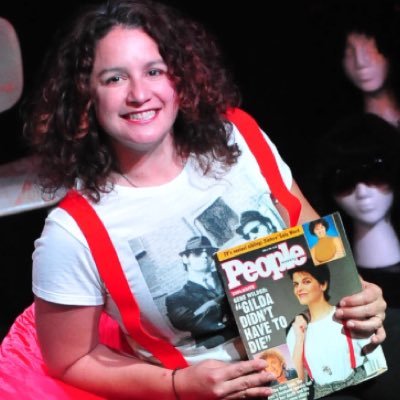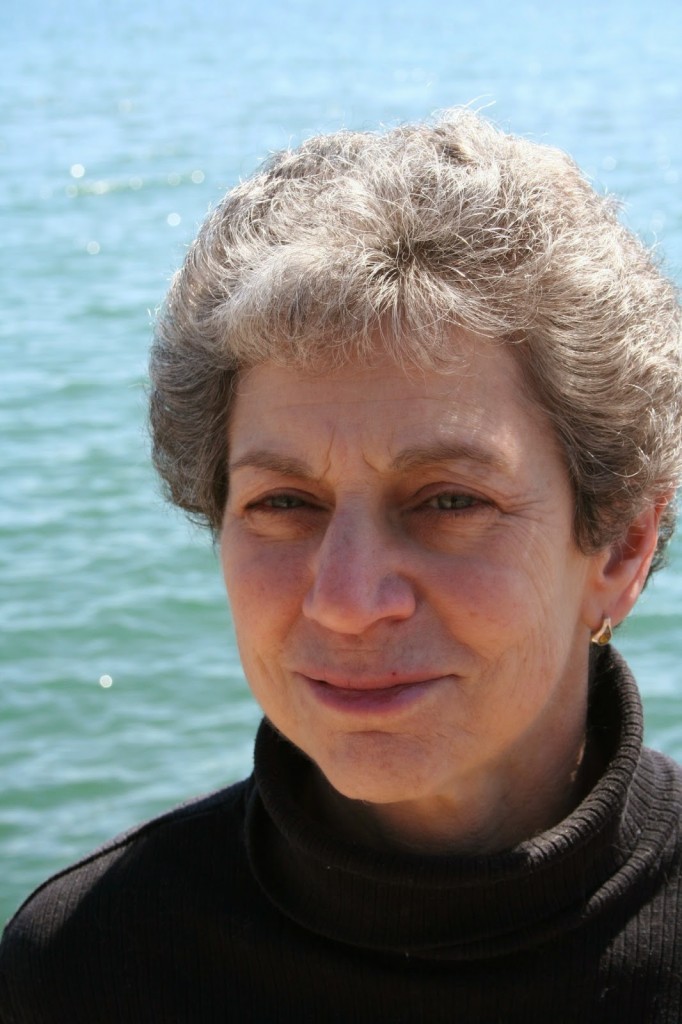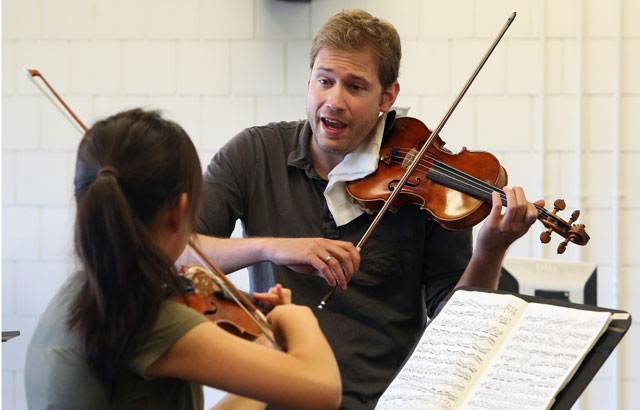 JAMES STRECKER: If you were asked for 50 words for an encyclopedia to summarize what you do, or have done, in the arts, what would you say?
JAMES STRECKER: If you were asked for 50 words for an encyclopedia to summarize what you do, or have done, in the arts, what would you say?
RENEE ALBRECHT: After graduating from McMaster University, Renee worked as a substitute teacher at Hamilton Girls Vocational School. Experiencing a rocky youth of her own seeded an affinity for mentoring precious ambitions in girls.
Renee, in1985, became the proprietor of the first and only feminist bookstore in Hamilton Ontario, the Women’s Bookstop (1985-2001). By way of bookshelves bursting with news of women working for change, globally, Renee steadfastly focused on promoting women’s cultural-economic projects.
She has delved into theatre production, (from writing scripts, to performing, to creating costumes), produced concerts by women folk artists, co-ordinated women’s art shows, social justice events and educational programs. She is a writer, publisher, painter, and photographer and a graduate of the Canadian College of Homeopathic Medicine.
Since moving, (in 2007), to Canada’s oldest fishing community, Canso Nova Scotia, Ms. Sagebear Albrecht has expressed her community organizing skills to inspire community co-operation, especially achieving the construction of new public library. Since grand opening day, in October 2010, the new facility has become a cultural-social-educational hub, and includes the Coastal Arts Gallery that promotes work by local artisans.
JS: What important beliefs do you express in or through your work?
RA: My work expresses appreciation for my life. I walk my talk. Making art is a souvenir of my existence.
JS: Name two people, living or dead, whom you admire a great deal and tell us why for each one.
RA: My heart is engraved by kindness of friends and strangers;
My friend Elizabeth (Betty) Mullin (1910 – 2008) was proud to be a Hamilton Public Librarian. Ensconced, at the original Carnegie style Central Public Library on Hamilton’s downtown Main Street, Miss Mullin fostered inspiration. She fondly recalled her mentor, the late Dr Frieda Walden, past Chief Librarian of Hamilton Public Library. Dr Walden encouraged Betty go to Columbia College. “Go and get your degree, never mind your marks, go and have fun!” Miss Mullin beamed with the recollection of Dr Walden’s advice to her. “So, I did what she said, I had gone to New York, had fun and never minded about my grades, therefore, in order to pass the course, I was forced to extend my stay in Manhattan to include summer school!”
Over time I came to realize that Miss Mullin’s sincere well-wishes reached hundreds and hundreds of young and old Hamilton Public Library Patrons, from all walks of life. She cheered them and fueled the dreams of future mayors, a deputy prime minister, nurse’s aides, journalists, explorers, shop keepers, daily service providers and volunteers. Wherever Miss Mullin went she was inadvertently reunited with people that were thrilled to, once more, stand near their favourite public librarian. Miss Mullin was a generous listener, and her advice was noble. She’d say, “Write a letter, write to the prime minister, the MP, write to the boss, the mayor, write to the chief, write to the Queen!”
To write a letter is to focus one’s thoughts, clarify a need, and communicate with power. Her love for life and books was infectious. I miss her.
Secondly, my maternal grandmother. Anna Magdalena was a single mother in Germany during the early twentieth century. During the hateful years of the Second World War, on a meager income, she raised two daughters and contributed to the wellbeing of her impoverished parents. My Oma’s genetic gift to me is consideration for mothers’ sacrifices. My grandmother worked in a textile factory. My grandmother pushed her daughters to learn fashion design, tailoring, and needle crafts; needle work was the artistry in our household.
JS: How have you changed since you began to do creative work?
RA: I used to think I lacked the discipline for accomplishments. I focused on the great expanse between now and then, I was impatient, too consumed with end results while I undervalued the process. Stamina has to be cultivated.
Experience underscores that grassroots creative expressions is vital to humanity’s progress, and people respond generously to meaningful invitations.
An idea arrives, I resist, or procrastinate. Once the usual menaces of doubt are overcome, I can schedule time and make myself stick to it.
JS: What are your biggest challenges as a creative person?
RA: To fathom individuality, rather than think and speak trendy phrases.
Unlearn deprecating self-talk.
Ignore nay -sayers, trust in a good future, corralling time.
How does one shorten time spent on necessary duties, distractions: raising children, family issues, keeping house, connecting with community; and tame the inner critique.
JS: Please describe at least one major turning point in your life.
RA: My first child was born one week before my seventeenth birthday. A year alter he was diagnosed with an incurable childhood cancer. He took his last breath at when he was just fifteen months old. Where did I find the strength to care about anything within that time of devastating grief? I was a wreck, and yet each new day arrived and I wandered into it in a state of relative sobriety still expecting my life to add up to something. This was the worst time of my life. As time passed, I was able to boldly step into the future. There was a sort of hope in excepting that, ‘The worst thing that could happen had already happened to me.’
Later, in my mid forties, I was faced with a situation that required me to cut ties with my birth-family. I was brought face to face with how silence perpetuates harm. I was forced to take a firm stand against tyranny. It has taken years to relax into a better self.
JS: What are the hardest things for an outsider to understand about what you do?
RA: These days I am unlikely to be concerned about whether outsiders comprehend my livelihood. I live quietly, contribute to community wellness, write, paint, photograph and work toward community development programs.
JS: How and why did you begin to do creative work in the first place?
RA: This is how the goddess made me.
There is a longing to add to the fabric of community through art and activism. I find working with a team on a project is a healthy/rewarding way to connect experience connection.
JS: What haven’t you attempted as yet that you would like to do and please tell us why?
RA: I procrastinate over writing about clinical results in my homeopathic practice. If you think the arts community is horribly critical you have to yet to meet the scientific community!
JS: What are your most meaningful achievements?
RA: I am amazed that my life led to operating a bookstore dedicated to the dreams and progress of women globally!
In 1984, when I began researching and organizing for the opening of Women’s Bookstop in Hamilton, I was naive. I had no idea that feminists were demanding such huge a range of radical change. Women from around the world were starting new publishing houses every month! In Hamilton, The Women’s Bookstop became a hub for women, a place to feel whole, a place where we could safely express frustrations over society’s lag in the social progress women envisioned. As the shop proprietor, I had to get smart, know what was in those books, or direct women to toward alternate solutions, this was the before the age of Google.!
Awareness led to personal growth and change.
“The Personal is Political” – “Think Globally Act Locally” remain guiding principles for sane progress. I know of infinite numbers of courageous women that recovered from horrific experiences and still worked for change. Those years shaped, nourish and strengthen me still.
Besides writing, painting, photography, I feel creative when an idea for a community project stirs in my imagination, then is realized by community team work.
In 2012, I was offered a scholarship to participate in the Mobilizing Assets for Community Development Program at the Coady International Institute at St Francis Xavier University in Antigonish, Nova Scotia. During the weeks of attending class with development workers for the southern Hemisphere and the Canadian North, I learned that in the 1920’s fisher folk, in Nova Scotia, were motivated by two idealist educators. Dr James Tompkins and Dr Moses Coady ignited the development of workers co-operatives across Canada. Moreover, the story of exploited workers becoming “Masters of Their Own Destiny,” still reverberates in distant lands. Such valuable history and yet, except for a portrait of Dr James Tompkins, in the bottom corner of a stain glass window, at the Star of the Sea Church, there was no sign of the heralded past in this historic community.
I contacted the most senior members of the community, and asked them to tell me what they could remember or what their parents had told them. Those interviews bring to life the dynamic kitchen table adult learning groups, and the rise of co-operative livelihoods that spread from Nova Scotia fishing outposts and spread inspiration across Canada.
See Whittling And Swapping, interviews compiled by Renee Sagebear Albrecht, published by Sagebear Institute, (ISBN 978-09940696-0-3)
JS: What advice would you give a young person who would like to do what you do?
RA: Believe in your significance, honour your searching spirit. People long for more than the dominant culture’s excitations. Let yourself be coaxed toward ways that inspire and warm the heart.
JS: Of what value are critics?
RA: If the critic is commenting from experience within the field of work being discussed, there would be value in the attending to expertise. Everything that is springs from what has gone before. Be brave, sweep away careless comments and keep practicing.
JS: What do you ask of your audience?
RA: Please attend!
JS: What specifically would you change about what goes on in the world and the arts?
RA: What I find disturbing, at the grass roots level is the lack of self-care among artists.
I think good change is happening. More of us grasp that artisan communities create distinction, provoke attention to vital matters, and add vibrancy to our existence. We are human because of art. Music, visual arts, literature, give rise to boundlessly diverse expressions of pain sorrow, dreams dashed as well as achievements.
I would prioritize early any consistent appreciation of creative sparks and imaginative expression. I live in a depressed rural community. Here it is easy to see how myriad of humble achievements buoy a community. Visionaries and artists are the seeds of social progress. As Alice Walker said, “We are the ones we are waiting for.”
JS: If you could relive one experience from your creative life, what would it be and why would you do so?
RA: I would have taken more art making classes rather than deny my artistic inclinations, rather than cramp my brain with calculus, and statistics, and psychology courses that drew from rat experiments, which never resonated with me.
JS: Tell us what it feels like to be a figure who is presented somehow in the media. What effect does this presence have on you?
RA: More in the past than now; I was often called upon to comment on issues concerning Women. At those times, it was important to grasp perspectives based in wisdom beyond myself.
In 1992, I was awarded a Governor General of Canada Community Service Award. and because of that recognition a sense of appreciation and intention to live honourably continues to pervade my choices, and that is a good thing.
JS: Name two places you would like to visit, one you haven’t been to and one to experience again and briefly tell us why.
RA: I would like to go to Italy, especially Venice, because of Donna Leon’s detective stories. Her protagonists strike me as gentle, brilliant people that eat scrumptious food.
I visit Vancouver Island every couple of years. I lived on the island, for several months, in 1978. Through that weird and wacky time, I recognized that I was wasting my mental determination and committed myself to study at McMaster University.
JS: Please tell us about one or more projects that you have been working on, are preparing, or have recently completed. Why do they matter to you and why should they matter to us?
RA: When I first moved to this Nova Scotia fishing town, with a population of less than 1,000, it was as if I’d been ethereally called to contribute to the development of the place. Town folk expressed disheartedness. They had watched the fisheries decline and disappear. A once thriving community had shrunk to bare essentials. I related their dismay over the town’s decline to how downtown Hamilton had, similarly, declined in the 1980s when city industries moved away from the core. Once prosperous department stores and retailers closed. In my mind, the community needed to support women-led initiatives.
Since Words are the first building blocks, I launched a women’s writing circle. Women revived their dreams one sentence at a time. Then a committee formed to build a new library.
Next, I taught the British Institute of Homeopathy for beginner’s course. I facilitated Healing Touch workshops and meditation workshops. I initiated team work to host cultural events and art shows.
Now a dream to host a healers conference at the library will come true on September 16, 2017. Practitioners of complimentary healing modalities will converge and present opportunities to learn and experience integrative healing arts. This event matters to the tiny community at the edge of the south-easterly edge of mainland Canada. This community is progressively re-inventing itself. People need to be exposed to our innate healing capacity and have paths to self- awareness demystified.
JS: Let’s talk about the state of the arts in today’s society, including the forms in which you work. What specifically gives you hope and what specifically do you find depressing?
RA: I refuse to be depressed because that means the dominant blow-hard wins.
It’s up to the people to expect more of themselves and their political representatives. We need to subtract lethargy and cultivate self-determination.
I see people ready for progress, looking for ways to change. Art-making calls attention to social oppression. Creative activity is vital for mental and emotional renewal.
JS: Finally, what do you yourself find to be the most intriguing and/or surprising thing about you?
RA: What surprises me is that I am hopeful even though misery happens and systemic cruelty continues.
There are times when I find myself thinking we are travelling in reverse. Then I hear, poems, songs, or see art work that springs from brilliant contemporary minds.
I appreciate my creative nature. I’m grateful for personal optimism, for dynamic writers and formidable leaders that I’ve learned from. I’m grateful for the capacity to pitch in.

